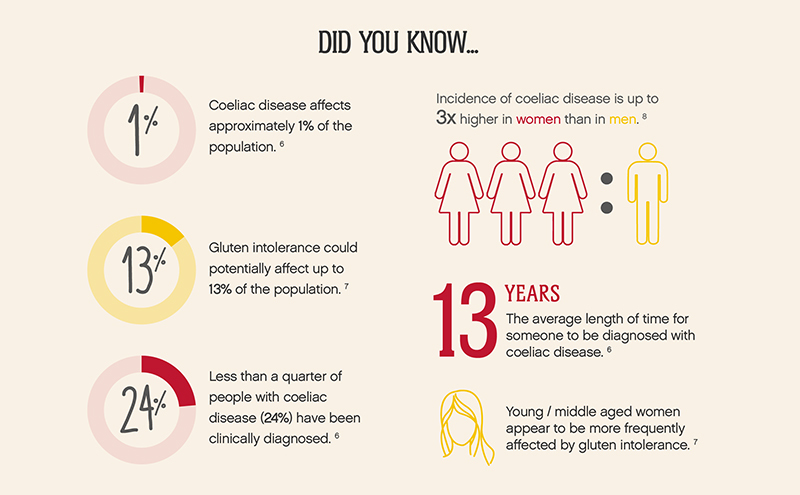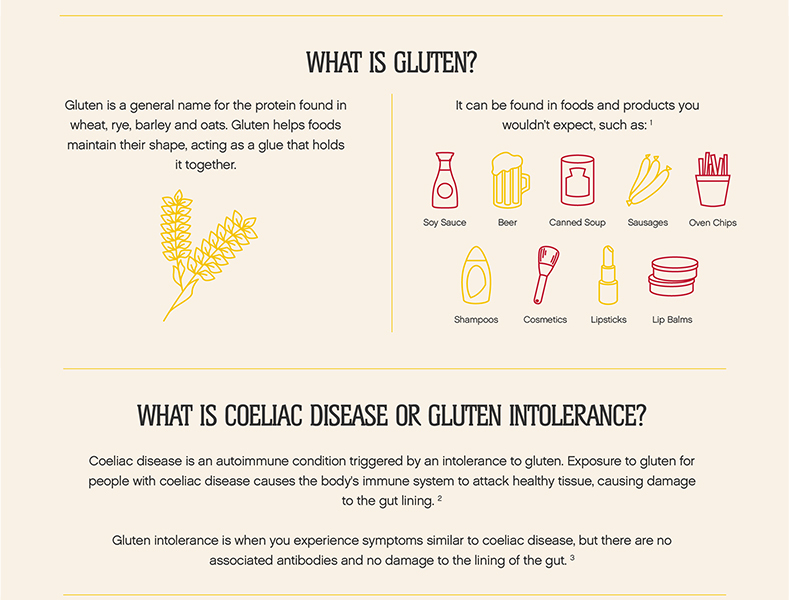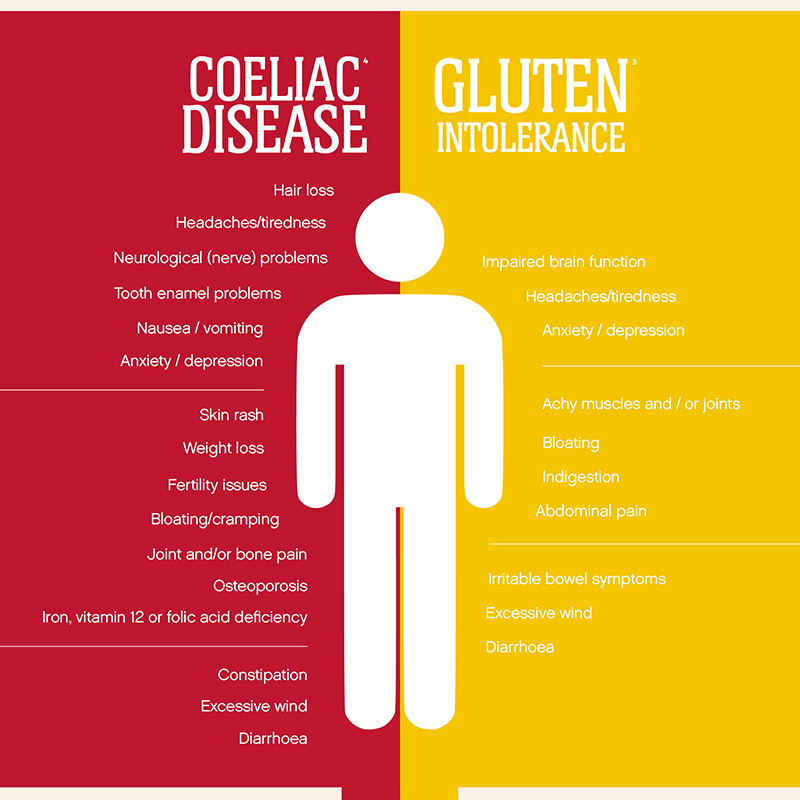Coeliac Disease: Myths And Facts You Need To Know

Coeliac Awareness Week takes place from May 14-20, 2018, and awareness of the condition is rising – but so is confusion.
With so much conflicting information and advice available about gluten, coeliac disease and gluten intolerance, we have enlisted the help of gastroenterologist Professor David Sanders from the Royal Hallamshire Hospital, Sheffield and Schär dietitian Melissa Wilson to help readers differentiate between fact and fiction!
Myth: Coeliac disease is not very common
Fact: Gastroenterologist Professor David Sanders explains, “Coeliac disease actually affects 1 in 100 people in the UK, making it more common than people may think. Under-diagnosis is a big problem as symptoms can be similar to other conditions such as irritable bowel syndrome (IBS) – only 24% of people with coeliac disease are clinically diagnosed.”
Myth: Coeliac disease is a condition diagnosed only during childhood
Fact: “Coeliac disease symptoms may develop at any age. It is actually most commonly diagnosed in people aged 40-60,” says Professor Sanders.
 Myth: Coeliac disease can’t be inherited
Myth: Coeliac disease can’t be inherited
Fact: “Coeliac disease is a condition that does run in families but not in a predictable way,” dietitian Melissa Wilson explains. “Studies show that if someone in a family has the condition, there is a 1 in 10 chance of a close relative developing the disease as well.
“If you experience any symptoms associated with coeliac disease, and you know of a first degree relative who also has the condition, you should speak to your GP about getting tested.”
Myth: Coeliac disease is just a food allergy
Fact: Melissa Wilson explains, “This is a myth that frustrates a lot of sufferers. It is actually an autoimmune disease that is triggered by the body’s reaction to gluten; it is not a food allergy.
“Exposure to gluten for people with the condition causes the body’s immune system to attack its healthy body tissues, resulting in damage to the gut lining. Other parts of the body may also be affected.”
Myth: Coeliac disease just causes an upset stomach
Fact: Professor Sanders notes, “Symptoms can be wide ranging and vary from person to person. They can include diarrhoea, stomach pain, lethargy, anaemia, depression, neurological problems and mouth ulcers, to name a few.
“Symptoms may also last anywhere between a few hours to a few days.”
 Myth: Nothing can be done to treat coeliac disease
Myth: Nothing can be done to treat coeliac disease
Fact: Professor Sanders explains, “Treatment for the condition is a strict lifelong gluten-free diet. Any reintroduction of gluten into the diet means the immune system will react and the gut lining will become damaged again.”
Myth: Coeliac disease is easily recognised and diagnosed
Fact: Dietitian Melissa Wilson notes that the condition can be difficult to diagnose.
“Symptoms are often vague and non-specific. They also vary greatly from person to person, appear at any age and can be similar to symptoms associated with other conditions (like IBS). This means it can sometimes take time for GPs to consider coeliac disease as a diagnosis.
“If you suspect you have coeliac disease, or are experiencing any of the symptoms, the best course of action is to speak to your GP. Ask about testing for the condition. It is important to continue on a gluten-containing diet during the diagnosis process to ensure the test results are accurate.”
Myth: A trial of a gluten free diet is a good way to find out if you have coeliac disease
Fact: “A gluten free diet should not be started until the diagnosis has been confirmed by your gastroenterologist. If you cut gluten from your diet before blood tests and further testing, this may affect your test results and further delay diagnosis. So speak to your GP before making any changes,” explains Professor Sanders
Myth: So you just need to avoid wheat and wheat products…
Fact: “A strict gluten-free diet is the only means of effectively managing coeliac disease. Gluten is a protein found in wheat, rye and barley so it is important to exclude foods containing these as ingredients.
“Gluten can also be found in a number of foods and products that you would not expect. These include soy sauce, beer, canned soup, sausages and oven chips. The presence of gluten must now be clearly labelled on food products, so it’s easy to see what is gluten free. However make sure you check food products carefully before eating them,” says Melissa Wilson.
*NB some people may also be sensitive to oats
Myth: Eating gluten every now and again won’t hurt
Fact: Melissa says, “Coeliac disease is a lifelong condition, which requires the strict exclusion of gluten from the diet. Eating it causes damage to the lining of the gut. Even very small amounts of gluten can lead to gut damage in people with coeliac disease.
“If you accidentally eat gluten, you may experience symptoms. These will vary between people and depend on a number of things, including how much you’ve eaten, how sensitive you are and how long you have been on a gluten free diet.
“While accidents can happen, the important thing is to return to a gluten free diet to avoid further symptoms and damage to the gut lining. ”
Chance to ask questions
To help raise awareness of coeliac disease throughout Coeliac Awareness Week, Schär will be hosting a Facebook live Q&A with Schär dietitian Katie Kennedy and Gastroenterology Specialist Dietitian from the Royal Hallamshire Hospital, Sheffield, Nick Trott, on Monday, May 14 from 8pm,
Both will be on hand to discuss the myths and facts of coeliac disease, the link between IBS and coeliac disease and answer any questions.
More information on the charity Coeliac UK’s website




